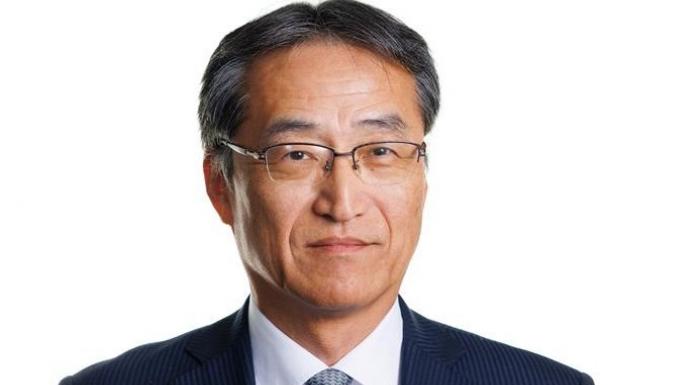Kubota has been a trusted name in agriculture, construction, and engine technology for more than fifty years in Europe. With its global philosophy “For Earth, For Life,” the company continues to drive innovation, sustainability, and digital transformation across the continent. In July 2025, Kubota officially opened its new European Headquarters in Nieuw-Vennep, at the heart of Amsterdam Airport City.
To mark this milestone, we spoke with Yasukazu Kamada, President & CEO of Kubota Holdings Europe about Kubota’s journey, the reasons behind choosing Amsterdam Airport City, and the company’s ambitions for the future.
1. Can you tell us about Kubota’s history and vision in Europe?
Kubota has been present in Europe for more than fifty years, beginning with the establishment of its first subsidiary in France in 1974. Over the decades, the company has expanded steadily across the continent, building a strong presence in agriculture, engines, and construction equipment. Today, Kubota’s European vision is guided by its global philosophy, “For Earth, For Life,” which emphasizes innovation, sustainability, and smart solutions that improve productivity while reducing environmental impact.
2. Why did Kubota choose Amsterdam Airport City for its European Headquarters?
The decision to locate the new headquarters in Nieuw-Vennep, part of Amsterdam Airport City, was driven by strategic advantages. The Netherlands offers world-class infrastructure, a highly skilled multilingual workforce, and direct access to Schiphol Airport, one of Europe’s main logistics hubs. This combination makes Haarlemmermeer an ideal base for coordinating Kubota’s European activities and fostering collaboration across its network.
3. How does this location support your goals in innovation, digitalization, and sustainability?
Nieuw-Vennep’s position within Amsterdam Airport City provides an ideal setting for Kubota’s ambitions. The region is home to a strong ecosystem of technology companies, research institutions, and sustainability initiatives, making it easier to forge partnerships and accelerate innovation. Its proximity to Schiphol enables efficient connectivity across Europe, while the wider Amsterdam area offers access to international talent skilled in digital technologies. Together, these factors create an environment where Kubota can advance its goals in smart farming, digitalization, and sustainability on both a regional and global scale.
4. Are you working with local companies, institutions, or stakeholders in the Haarlemmermeer?
Kubota is already closely tied to the local ecosystem through Kverneland Group’s long-standing presence in Nieuw-Vennep. Kverneland Group Nieuw-Vennep and Kverneland Group Mechatronics won the Haarlemmermeer Business Award as the company of the year in 2021. By sharing the new headquarters with these divisions, Kubota strengthens its cooperation with local stakeholders and remains deeply embedded in the region’s industrial community. Besides this, Kubota makes sure to work with local initiatives like Avond4Dagse and companies when it comes to printing, hotels, restaurants, and so forth.

5. What concrete initiatives are currently underway regarding ESG, smart agriculture, or digital transformation?
Kubota is pursuing multiple initiatives. On the ESG front, the company has set group-wide targets to reduce emissions, improve resource efficiency, and strengthen supply chain responsibility. In digital farming, Kverneland Mechatronics continues to develop ISOBUS technology and smart terminals and implements. These initiatives bring concrete benefits to farmers in efficiency, data-driven decision-making, and sustainability.
6. How do you experience doing business here—considering the infrastructure, talent pool, proximity to Schiphol, and public-private cooperation?
The Netherlands offers an excellent environment for international business. The proximity to Schiphol ensures fast access to markets across Europe, while the Amsterdam region provides a diverse, multilingual talent pool. The supportive ecosystem, shaped by public/private cooperation, creates favorable conditions for innovation and long-term investment. Kubota views these factors as critical enablers of its European growth. Also the collaboration and membership with DUJAT, the Dutch Japanese Trade organization has expanded our network and business information exchange.
7. What do you see as the main opportunities and challenges for Kubota in this region in the coming years?
Kubota sees strong opportunities to expand Construction business and Agritech business in Europe. At the same time, competition for highly skilled talent in the Randstad area poses a challenge, as does the growing complexity of sustainability regulation across the EU. Yet, these challenges also provide opportunities for Kubota to differentiate through innovation and leadership in sustainability.
8. Are there future plans to expand or further develop your presence in Nieuw-Vennep?
Yes. The new headquarters have been designed with future growth in mind. Kubota has plans to increase employment and expand R&D capabilities in the Netherlands, ensuring that the Nieuw-Vennep location evolves into both a corporate and technological hub for the group’s European operations.
9. Is there anything else you would like to highlight—something we haven’t asked but that’s important to Kubota’s story?
The opening of the European Headquarters underscores the company’s long-standing commitment to the region. The building is more than a workplace; it is a symbol of Kubota’s ambition to foster collaboration, innovation, and sustainable growth for the decades to come.

